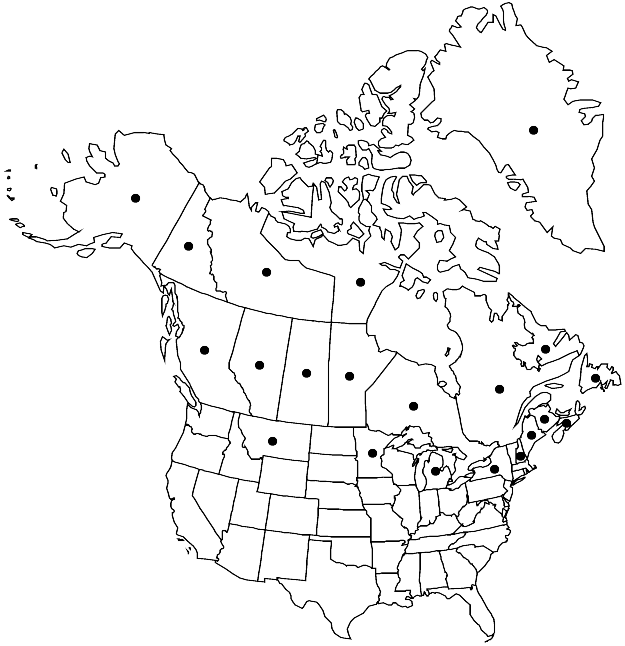Tetraplodon angustatus
Bryol. Europ. 3: 214. 1844.
Plants 2–8 cm, yellow-green to brown. Leaves long-lanceolate, concave, 3–4 × 0.5 mm; margins with large teeth or occasionally entire; apex slenderly long-acuminate; costa nearly filling subula; distal laminal cells rectangular or oblong-hexagonal, 20 × 30 µm. Sexual condition autoicous or dioicous. Seta brownish, 0.2–0.4 cm. Capsule stegocarpous, brown, dark-brown with age, ovate-cylindric; hypophysis wider than urn; stomata in distal hypophysis; operculum hemispheric or bluntly conic. Calyptra conic-mitrate. Spores 9–10 µm, smooth.
Phenology: Capsules mature summer.
Habitat: Dung of carnivores, old bones, owl pellets, dry boreal habitats
Elevation: low to high elevations
Distribution

Greenland, Alta., B.C., Man., N.B., Nfld. and Labr., N.W.T., N.S., Nunavut, Ont., Que., Sask., Yukon, Alaska, Maine, Mich., Minn., Mont., N.H., N.Y., n, c Europe, Asia (China), Asia (Japan), Asia (Siberia)
Discussion
Tetraplodon angustatus, like T. mnioides, is mainly boreal in distribution and occurs on similar substrates; it is easily distinguished from T. mnioides by lanceolate-acuminate, irregularly serrate leaves that narrow to a slender, elongate acumen, shorter seta, and green (brown with age) hypophysis. In Alberta, sporophytes mature in spring prior to the maturation of T. mnioides sporophytes, resulting in the temporal separation of spores of these two species on fresh droppings and thus the physical separation of T. angustatus and T. mnioides on droppings where these two species occur together regionally.
Selected References
None.